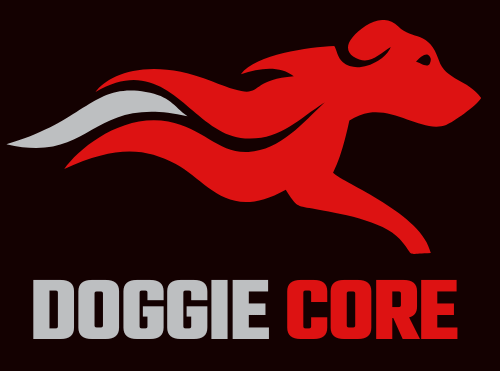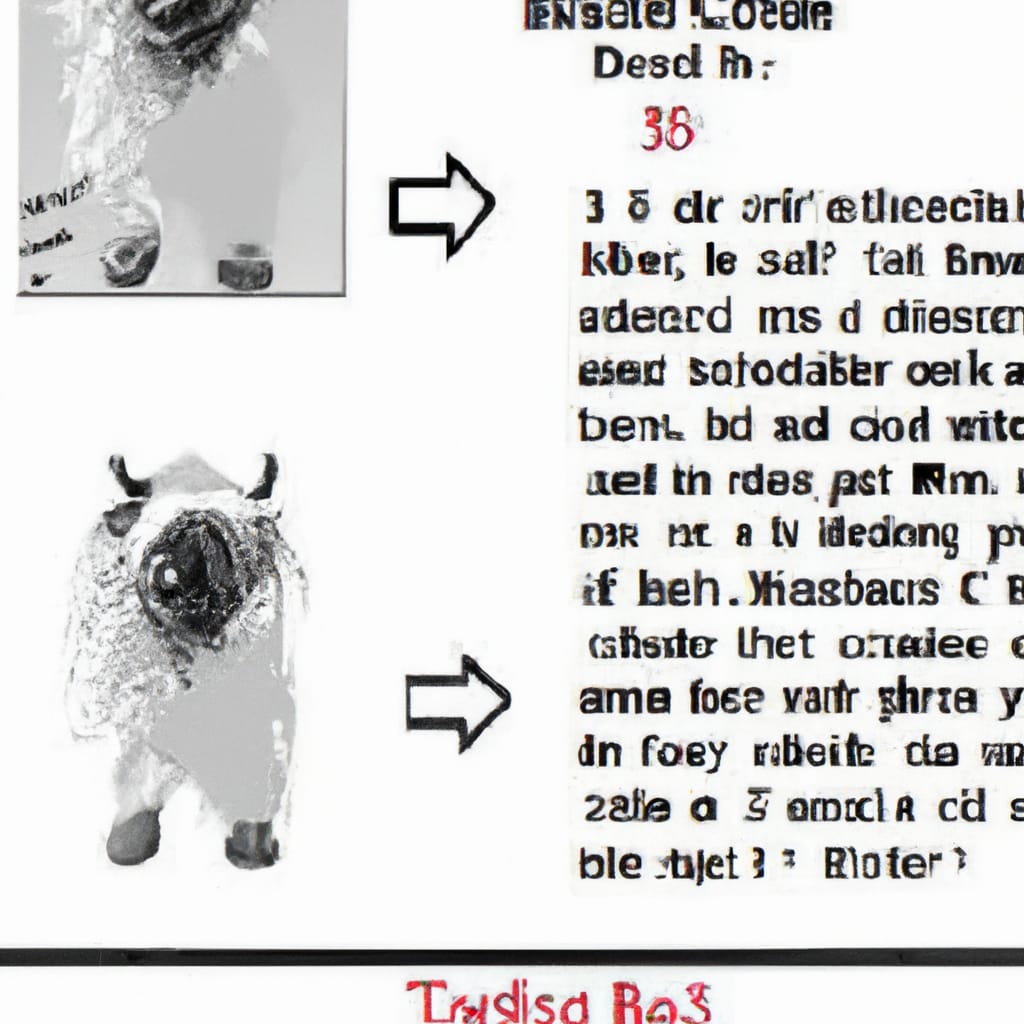Everything You Need To Know About Dilated Cardiomyopathy (DCM) In Dogs
In this article, we will explore the ins and outs of Dilated Cardiomyopathy (DCM) in dogs. From understanding the causes and symptoms, to learning about the available treatment options, we’ve got you covered. Whether you’re a dog owner or simply interested in learning more about this condition, this article will provide you with everything you need to know about DCM in dogs. So, let’s get started and uncover the facts about this cardiac disease that can affect our canine companions.

What is Dilated Cardiomyopathy (DCM)?
Definition
Dilated Cardiomyopathy (DCM) is a heart disease that affects both humans and dogs. In DCM, the heart muscles become weak and stretched, resulting in the enlargement of the heart chambers. This condition impairs the heart’s ability to pump blood effectively, leading to a variety of symptoms and potentially life-threatening complications.
Causes
The exact cause of DCM in dogs is not fully understood, but it is believed to have both genetic and environmental components. Some cases of DCM are thought to be inherited, particularly in certain dog breeds, while others may be triggered by nutritional deficiencies or underlying health conditions. In some instances, DCM can also be caused by toxins or certain medications.
Symptoms
The symptoms of DCM in dogs can vary depending on the stage of the disease and the severity of the condition. In the early stages, dogs may show subtle signs such as reduced energy, exercise intolerance, and coughing. As the disease progresses, more noticeable symptoms may develop, including shortness of breath, rapid or irregular heartbeat, fainting, and fluid accumulation in the abdomen and limbs.
Diagnosis
Diagnosing DCM in dogs typically involves a combination of physical examination, imaging tests, and cardiac evaluations. During a physical examination, the veterinarian may listen for abnormal heart sounds, check for fluid accumulation, and assess the overall health of the dog. Imaging tests such as radiography and echocardiography help to visualize the size and function of the heart. An electrocardiogram (ECG) may also be performed to evaluate the heart’s electrical activity and detect any rhythm abnormalities.
Treatment
While there is no cure for DCM in dogs, there are treatment options available to manage the disease and improve the dog’s quality of life. Medications such as ACE inhibitors and diuretics may be prescribed to regulate blood pressure and reduce fluid buildup. Dietary changes, including the addition of specific nutrients like taurine or L-carnitine, may also be recommended. In some cases, surgical interventions such as pacemaker implantation or heart valve repair may be necessary to address complications associated with advanced DCM.
Prevalence of DCM in Dogs
Statistics
Dilated Cardiomyopathy is one of the most common heart diseases in dogs, affecting a significant number of canine patients worldwide. While the exact prevalence of DCM varies among different populations and breeds, studies estimate that approximately 10% to 15% of dogs diagnosed with heart disease have DCM. It is essential to note that certain dog breeds have a higher predisposition to this condition, contributing to the overall prevalence.
Risk Factors
Several factors can increase the risk of a dog developing DCM. One of the most significant risk factors is breed predisposition. Certain breeds, such as Doberman Pinschers, Great Danes, and Irish Wolfhounds, are known to have a higher incidence of DCM. Age can also be a contributing factor, as older dogs are generally more susceptible to developing heart disease. Additionally, gender may play a role, as certain studies suggest that male dogs may be more prone to DCM than females.
Types of Dogs Prone to DCM
Breed Predisposition
Dilated Cardiomyopathy is more commonly observed in certain dog breeds compared to others. Breeds known to have a higher predisposition to DCM include Doberman Pinschers, Great Danes, Boxers, Cocker Spaniels, and Irish Wolfhounds. These breeds often have a genetic mutation or susceptibility that increases their likelihood of developing the disease. It is essential for owners of these breeds to be aware of the signs and symptoms of DCM and take proactive measures to monitor their dog’s heart health.
Age Predisposition
While Dilated Cardiomyopathy can affect dogs of all ages, it is more commonly diagnosed in middle-aged to older dogs. The risk of developing DCM tends to increase as dogs age, with most cases being seen in dogs between the ages of 4 and 10. However, it is still crucial to monitor younger dogs for signs of heart disease, especially if they belong to a breed that is predisposed to DCM.
Gender Predisposition
Research on the gender predisposition of DCM in dogs has yielded conflicting results. Some studies suggest that male dogs may be more susceptible to developing DCM, while others have found no significant gender differences. Therefore, it is important to note that gender alone is not a definitive indicator of DCM risk, and both male and female dogs should receive equal attention regarding heart health.
Understanding the Pathophysiology of DCM
Heart Anatomy and Function
To understand how Dilated Cardiomyopathy affects the heart, it is essential to first grasp the basic anatomy and function of the heart. The heart is a muscular organ responsible for pumping oxygenated blood to the body’s tissues and organs. It consists of four chambers: two atria (upper chambers) and two ventricles (lower chambers). The heart also contains valves that help maintain the forward flow of blood during each heartbeat.
How DCM Affects the Heart
In Dilated Cardiomyopathy, the heart muscles become weakened and stretched, causing the chambers to dilate or enlarge. This enlargement disrupts the normal contractility of the heart, reducing its ability to pump blood effectively. As a result, the heart works harder to compensate, leading to further deterioration of cardiac function. Over time, this can lead to congestive heart failure, arrhythmias, and other complications.

Recognizing the Symptoms of DCM
Early Signs
Identifying the early signs of Dilated Cardiomyopathy is crucial for prompt diagnosis and intervention. These signs can include decreased energy levels, reluctance to exercise, coughing, and increased respiratory rate. Paying attention to these subtle changes in your dog’s behavior and overall demeanor will allow you to seek veterinary attention early on, potentially improving your dog’s prognosis and quality of life.
Advanced Stage Symptoms
As DCM progresses, the symptoms become more severe and noticeable. Advanced stage symptoms may include difficulty breathing, rapid or irregular heartbeat, fainting or collapsing, and the accumulation of fluid in the abdomen and limbs. If your dog exhibits any of these symptoms, it is essential to consult with a veterinarian as soon as possible for a thorough evaluation and appropriate treatment.
Diagnostic Tests for DCM
Physical Examination
During a physical examination, the veterinarian will listen to your dog’s heart, lungs, and assess their overall health. Abnormalities in heart sounds, such as murmurs or irregular rhythms, may indicate the presence of cardiac disease. The vet may also check for signs of fluid accumulation and evaluate the dog’s general condition to determine the severity of the disease.
Radiography
Radiography, or X-ray imaging, allows for the visualization of the heart’s size, shape, and position within the chest cavity. Enlargement of the heart chambers, fluid accumulation, and other abnormalities can often be detected on these images. Radiographs can also help assess the overall condition of the lungs and other thoracic structures, providing valuable information about the presence and staging of DCM.
Echocardiography
Echocardiography uses ultrasound waves to create real-time images of the heart. This non-invasive diagnostic test allows for a detailed evaluation of the heart’s size, structure, and function. Echocardiograms can help determine the extent of enlargement and dysfunction in DCM, as well as identify any valvular abnormalities or fluid accumulation. This test is considered the gold standard for diagnosing DCM in dogs.
Electrocardiogram (ECG)
An electrocardiogram (ECG) is a diagnostic tool used to evaluate the electrical activity of the heart. It records the heart’s electrical impulses and can detect any irregularities or abnormalities in the heartbeat. ECGs can help determine if there are any rhythm disturbances, which are commonly seen in dogs with DCM. This test is often performed in conjunction with other diagnostic tests to provide a comprehensive evaluation of the heart’s health.
Treatment Options for DCM
Medications
Several types of medications may be prescribed to manage Dilated Cardiomyopathy in dogs. These may include ACE inhibitors, which help relax blood vessels and reduce blood pressure, and diuretics, which promote the elimination of excess fluid from the body. Other medications, such as beta-blockers and anti-arrhythmic drugs, may also be used to control irregular heart rhythms and improve cardiac function.
Dietary Changes
In some cases, dietary modifications can play a crucial role in managing DCM. Adding specific nutrients, such as taurine or L-carnitine, to the dog’s diet may be recommended. These nutrients have been shown to have a positive impact on heart health and may help improve the symptoms and progression of DCM. Your veterinarian can provide guidance on the most suitable diet for your dog’s specific needs.
Exercise and Rest Recommendations
Ensuring an appropriate balance of exercise and rest is essential for dogs with Dilated Cardiomyopathy. Avoiding excessive physical exertion and providing frequent opportunities for rest help prevent the exacerbation of cardiac symptoms. However, controlled and moderate exercise is still encouraged to maintain overall muscle tone and prevent muscle wasting. It is crucial to follow the advice of your veterinarian regarding exercise restrictions and guidelines.
Surgical Interventions
In severe cases of Dilated Cardiomyopathy, surgical interventions may be necessary to address complications or manage the disease. Pacemaker implantation, which helps regulate the heart’s electrical activity, may be performed to address rhythm abnormalities. In some instances, heart valve repair or replacement surgery may be considered. These procedures aim to improve cardiac function and alleviate the symptoms associated with advanced DCM.
Prognosis and Life Expectancy
Factors Affecting Prognosis
The prognosis for dogs with Dilated Cardiomyopathy can vary depending on several factors. The stage of the disease at the time of diagnosis, the dog’s overall health, and the response to treatment all play a role in determining the prognosis. Timely diagnosis and initiation of appropriate treatment can significantly improve the dog’s prognosis, while more advanced stages or complications may have a less favorable outcome.
Life Expectancy
The life expectancy of a dog with Dilated Cardiomyopathy depends on several factors, including the breed, the severity of the disease, and the dog’s individual response to treatment. While DCM is a progressive and potentially life-threatening condition, proactive management and regular veterinary care can help extend the dog’s lifespan and improve their quality of life. Some dogs may live several years with proper treatment and care, while others may have a shorter life expectancy.
Preventive Measures for DCM
Regular Veterinary Check-ups
Regular veterinary check-ups are crucial in preventing and managing Dilated Cardiomyopathy. Routine physical examinations, imaging tests, and cardiac evaluations can help detect early signs of cardiac disease and allow for prompt intervention. Monitoring your dog’s heart health with the guidance of a veterinarian ensures that any changes or abnormalities are addressed promptly, potentially preventing the progression of DCM.
Nutritional Considerations
Proper nutrition is essential in maintaining overall canine health and may play a role in preventing DCM. Feeding a balanced diet that meets the specific nutritional needs of your dog, including appropriate levels of essential nutrients, is crucial. For certain dog breeds known to have a higher risk of DCM, it may be beneficial to consider diets that contain added taurine or L-carnitine, as these nutrients have been linked to improved heart health.
Genetic Testing and Breeding Practices
In breeds known to have a genetic predisposition to Dilated Cardiomyopathy, genetic testing can be an effective preventive measure. Screening breeding dogs for genetic markers associated with DCM allows breeders to make informed decisions and avoid pairing dogs that are at higher risk of producing offspring with the disease. Responsible breeding practices can help reduce the incidence of DCM in susceptible breeds over time.
Living with a Dog with DCM
Managing Medications
Living with a dog diagnosed with Dilated Cardiomyopathy often involves managing a complex medication regimen. It is essential to follow the prescribed dosage and administration instructions provided by the veterinarian. Setting up a routine for medication administration and keeping track of refills can help ensure that your dog receives the necessary medications consistently and without interruption.
Monitoring Heart Health
Regular monitoring of your dog’s heart health is crucial for managing DCM. This may involve visits to the veterinarian for follow-up examinations, imaging tests, and cardiac evaluations. Monitoring your dog’s weight, respiratory rate, and overall well-being at home can also provide valuable information about the progression of the disease. Any changes or concerns should be promptly reported to your veterinarian.
Quality of Life Considerations
Maintaining a good quality of life for a dog with Dilated Cardiomyopathy is a primary goal of treatment. Providing a comfortable and low-stress environment, ensuring a well-balanced diet, and managing pain and discomfort are essential aspects of caring for a dog with DCM. Regular communication with your veterinarian and seeking guidance from a veterinary cardiologist can help optimize your dog’s quality of life and ensure their well-being.













